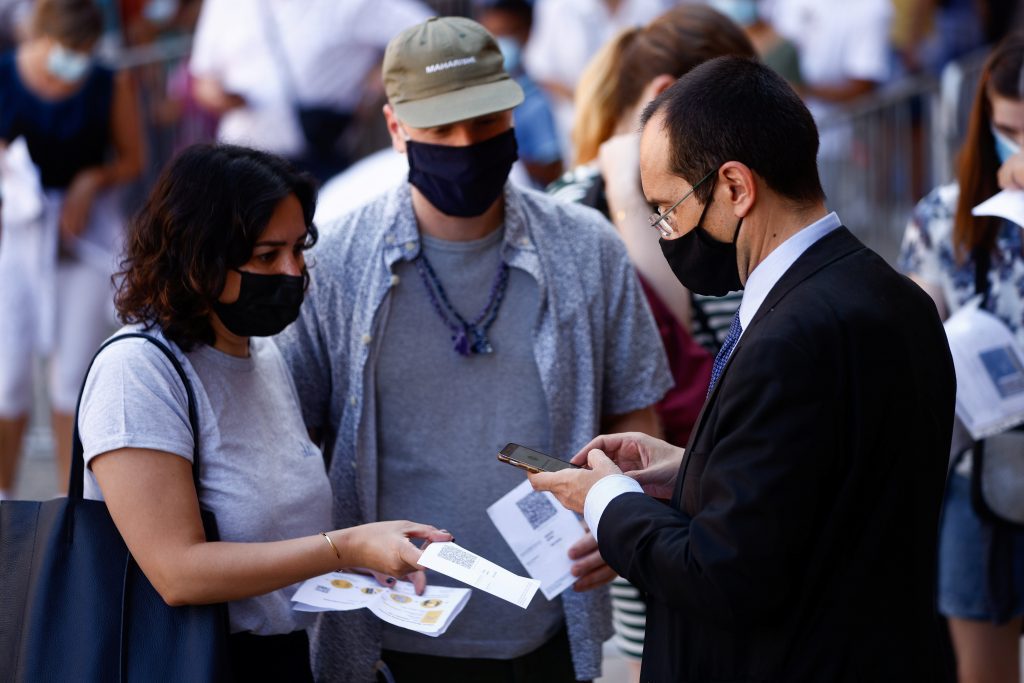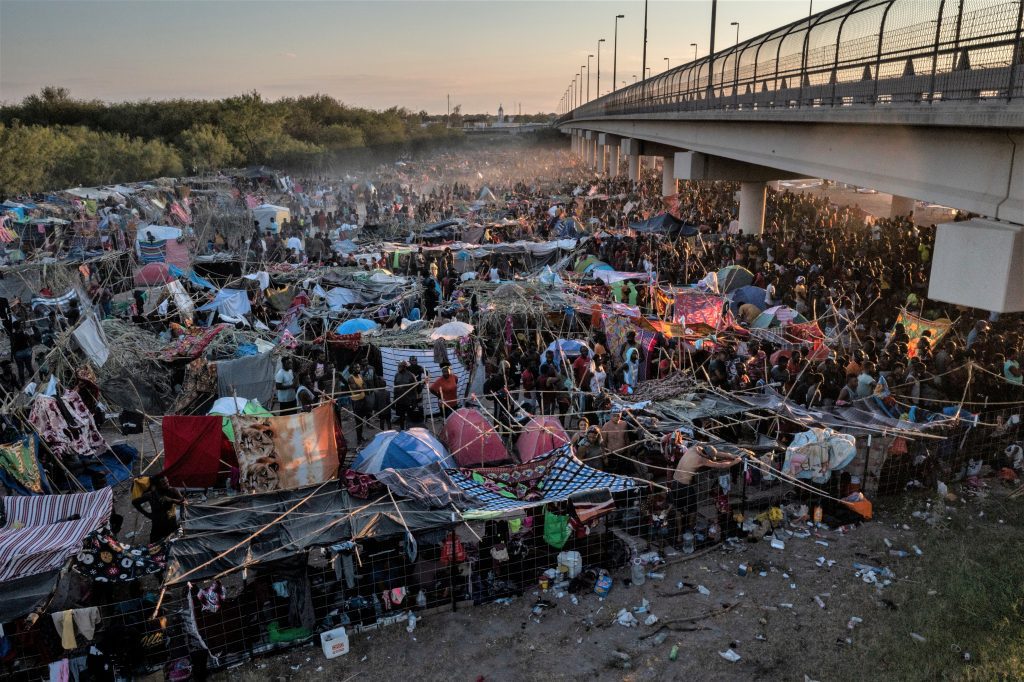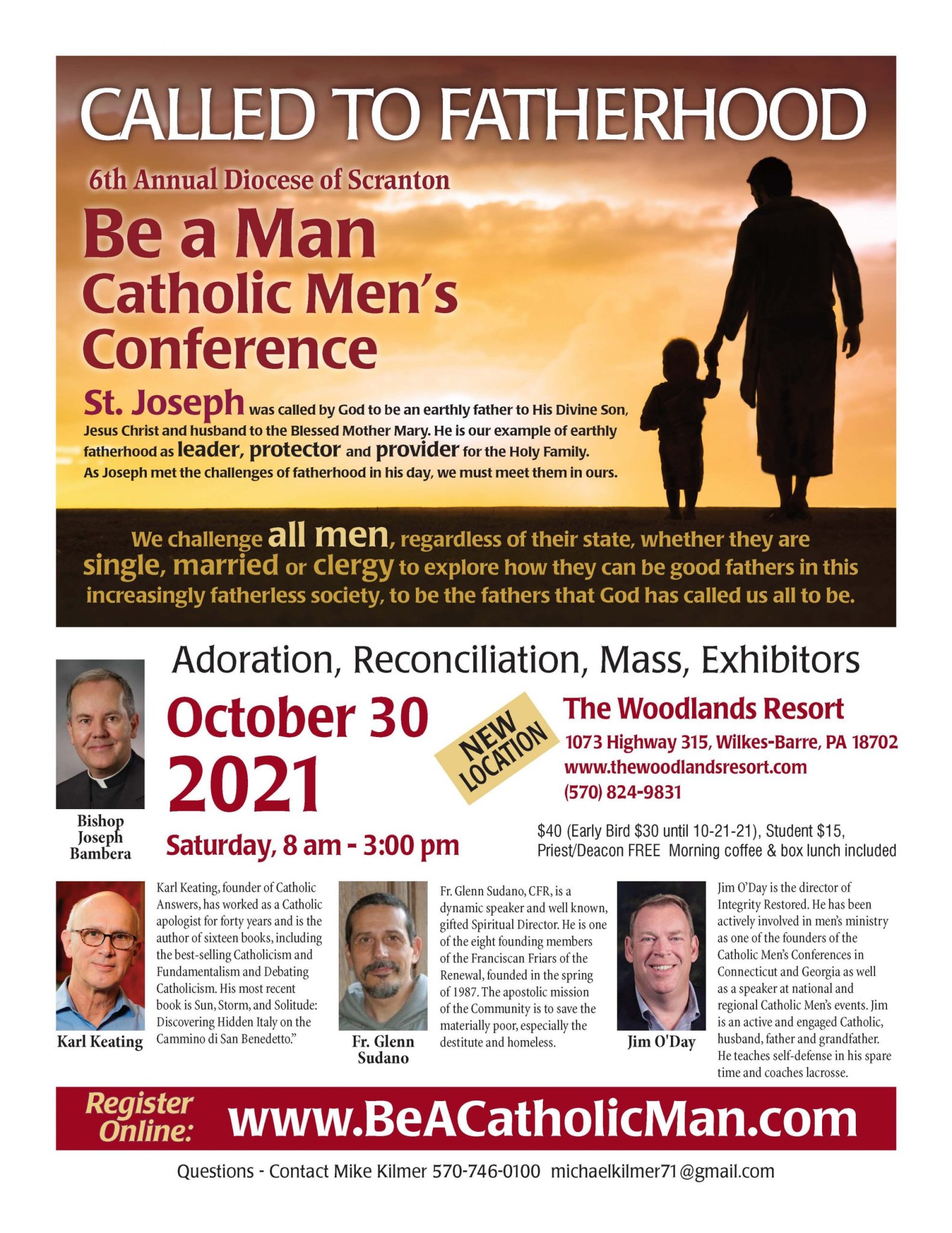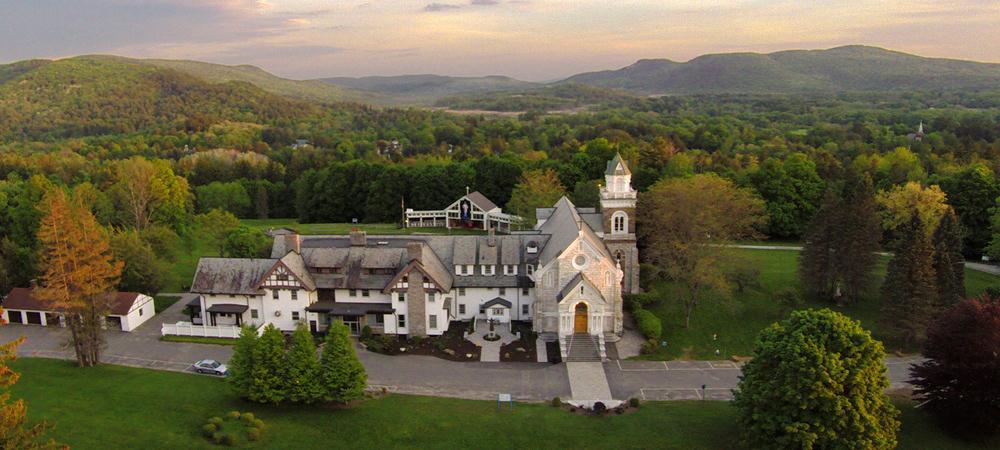 SCRANTON – When Thomas and Stephanie Dzwonczyk talk about the importance of the Diocesan Annual Appeal, they speak from a personal perspective. Their son, Thomas, is a seminarian for the Diocese of Scranton who recently started his second year at Saint Mary’s Seminary in Baltimore, Md.
SCRANTON – When Thomas and Stephanie Dzwonczyk talk about the importance of the Diocesan Annual Appeal, they speak from a personal perspective. Their son, Thomas, is a seminarian for the Diocese of Scranton who recently started his second year at Saint Mary’s Seminary in Baltimore, Md.
Through their son, Tom and Stephanie have met all nine of the current seminarians for the diocese. This year, the Dzwonczyks are one of six local couples serving as regional chairs for the Appeal.
“These pious, dynamic, engaging and talented young men give us great confidence in the future for the Diocese of Scranton and the Catholic Church as a whole,” Thomas said. “They will one day lead us in worship, administer the Sacraments and preside over the weddings and funerals of those we love.”
Gifts to the Diocesan Annual Appeal have a wide-ranging, significant impact throughout not only the diocese but also the entire community of northeastern and north central Pennsylvania. Providing assistance to seminarians who are in priestly formation is just one of the many things that the Appeal supports.
“No one with a true calling to the priesthood should be turned away for lack of funds,” Thomas added.
The 2021 Diocesan Annual Appeal: Rising Together in Christ will begin in all parishes in the Diocese of Scranton on Sept. 18 and 19. This year’s goal is $4.5 million.
An Appeal video will be shown at Masses and made available on parish websites and Facebook pages. Six regional Appeal videos have been produced to feature ministries funded by the Appeal in each area of the diocese. The videos are all now available on the Diocese of Scranton website.
“The last 18 months have been challenging for all of us. One of the many things the COVID-19 pandemic has taught us is just how interconnected we are and how much we need one another,” the Most Rev. Joseph C. Bambera, Bishop of Scranton, said. “Through the generosity of Diocesan Annual Appeal donors, we have been able to touch thousands of lives – serving the poor, educating our children and spreading the Gospel message.”
Because of the pandemic, the traditional In-Pew Commitment Weekend for the Appeal will take place differently. Pledge envelopes will be mailed to parishioners’ homes and donors will be asked to bring the envelopes to their churches on the weekend of Oct. 16 and 17.
This year, for the first time, the Diocese of Scranton will also be participating in the national #iGiveCatholic campaign, a special Thanksgiving-season campaign that concludes on Giving Tuesday and allows donors an easy and convenient way to donate.
Gifts to the Appeal have a significant impact to help diocesan ministries serve an increasing number of people in need and provide opportunities to offer programs and services in different ways in response to the pandemic.
There are hundreds of stories of how Appeal funds make a difference throughout the community.
In Pike County for example, Saint Patrick Church in Milford and Saint Joseph Church in Matamoras receive Social Justice Grants to support important projects. One of several causes the two churches support is Pike County Hands of Hope, a Christ-centered organization dedicated to providing compassion and hope to homeless families by meeting their basic needs of food, clothing and shelter.
With no homeless shelters in Pike County, volunteers respond to dozens of calls for help to their “Hopeline.” Since 2016, the Hopeline has received an average of 249 calls per year. During the pandemic, that number increased significantly. Behind each call is someone needing assistance.
“We really appreciate the Diocesan Annual Appeal for helping us so much,” Anne French, Pike County Hands of Hope volunteer, said.
In addition to Social Justice Grants that funnel back directly to parishes – donations to the Annual Appeal support many different Diocesan ministries.
Catholic Social Services of the Diocese of Scranton serves hundreds of thousands of individuals, families and seniors through its kitchens, food panties and shelters each year. During the pandemic, the agency met the needs of clients by holding several extra food distributions outside normal food pantry hours.
Appeal gifts also support Diocesan Catholic School teachers and staff as they make the significant changes that are needed to continue to provide a quality, in-person education to our students in the safest possible way.
Donations to the Appeal support the Diocesan Office for Parish Life in its efforts to develop new ways to connect to parishes and reach out to parishioners. In an effort to reach out to our Hispanic brothers and sisters, the Hispanic ministry office recently launched a weekly Spanish Catholic radio show on LaMega Radio, which broadcasts in Scranton and Wilkes-Barre.
Thousands of the faithful who are not able to attend Mass in person continue to watch the broadcast and livestream Masses from the Cathedral of Saint Peter. Since the beginning of the pandemic, and the launch of Mass broadcasts on the weekends, viewership of Catholic Television has increased by ten times online alone. The Catholic Light and information provided on the Diocesan website are also funded by donations to the Appeal.
In addition to assisting our seminarians, gifts to the Appeal also provide care and support for retired and ill Diocesan priest who have dedicated their lives in faithful service to parishioners throughout the diocese.
Donors to the Appeal may designate their gift to any of the ministries listed above.
For more information on the Diocesan ministries supported by gifts to the Annual Appeal, to view one of the regional videos or to make a donation online, visit annualappeal.org. Gifts may also be made by calling the Diocesan Development Office at (570) 207-2250 or by sending a donation to: Diocesan Annual Appeal, 300 Wyoming Avenue, Scranton, PA, 18503.
To make an online gift now visit: www.annualappeal.org








 CARBONDALE – Catholic Social Services of the Diocese of Scranton is continuing its outreach to the community during the COVID-19 pandemic.
CARBONDALE – Catholic Social Services of the Diocese of Scranton is continuing its outreach to the community during the COVID-19 pandemic. SCRANTON – When Thomas and Stephanie Dzwonczyk talk about the importance of the Diocesan Annual Appeal, they speak from a personal perspective. Their son, Thomas, is a seminarian for the Diocese of Scranton who recently started his second year at Saint Mary’s Seminary in Baltimore, Md.
SCRANTON – When Thomas and Stephanie Dzwonczyk talk about the importance of the Diocesan Annual Appeal, they speak from a personal perspective. Their son, Thomas, is a seminarian for the Diocese of Scranton who recently started his second year at Saint Mary’s Seminary in Baltimore, Md.